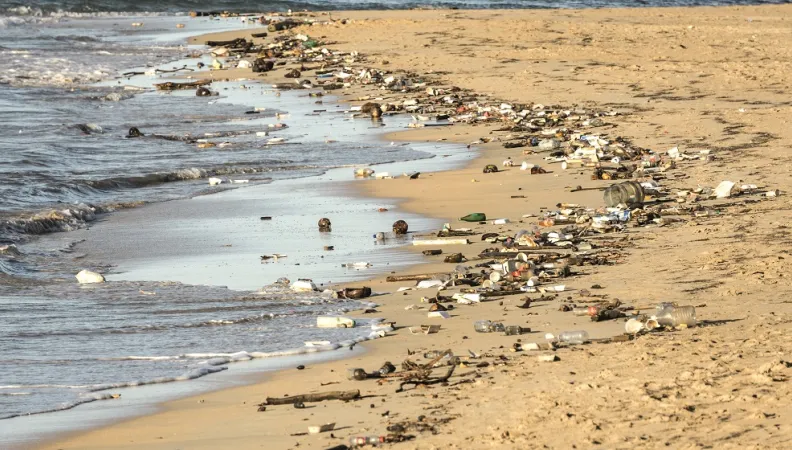Share the page
Indonesia: Tackling Plastic and Marine Debris
Published on

For a country consisting of 17,000 islands and dependent on the sea around them, it’s an environmental crisis: Indonesia’s waters are full of plastic. It’s time to turn the tide. On 12 March, the Indonesian Ministry of Maritime Affairs and Fisheries, IRD and AFD signed an agreement aiming to raise awareness of the causes of marine debris, its effects at sea, and ways to reduce the pollution.
Ocean Debris
The world’s largest archipelago, Indonesia is a country whose development depends on its unique relationship with the surrounding oceans. Indonesia is also a major reservoir of biodiversity that is threatened by both human activities and climate change.
Indonesia is combating plastic pollution
After China, Indonesia is the world’s second largest producer of marine plastic debris. And yet the oceans are not only vulnerable, they play a crucial role in the country’s maritime heritage, in terms of its biodiversity and a thriving tourism industry. But with more than 6.5 million people employed in the fisheries and aquaculture sectors, pollution has a major impact on the country’s food security. That’s why an Action Plan on Marine Plastic Debris was adopted in 2018, and aims to reduce plastic debris by 70% by 2025.
Read also: The Clean Oceans Initiative
In 2019, the Indonesian Government called on AFD’s support to improve the monitoring and modelling of marine debris nationwide. The project will provide equipment and research to monitor the distribution and movement of marine debris, particularly in rivers, which carry plastics out to the ocean. What will follow are recommendations for treating and reducing this pollution – and for trying to avoid it in the future.
Pilot project to tackle plastic
AFD is providing a €500,000 grant for this project. It will be based on a partnership with IRD (French National Research Institute for Sustainable Development) and will contribute to promoting French expertise in oceanographic research and the commitments of the French State, such as the “National Pact on Plastic Packaging”. IRD will mobilize CLS, a subsidiary of the space agency CNES, which has recognized experience in Indonesia.
Saving vulnerable wildlife
This project will help to protect wildlife, too. It will monitor the movements of sea turtles, a species that is particularly affected as they can swallow plastic debris or get tangled up in it. The project will make it possible to trace the travels of sea turtles and examine where they may come into contact with drifting plastic, in order to identify areas of risk and vulnerability.
